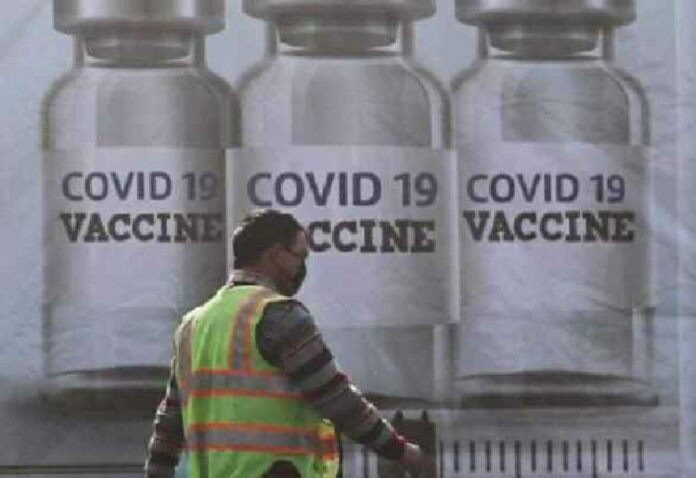As we enter the new year with a continuing coronavirus threat there is the good news that on January 3 the Drugs Controller General of India approved two vaccines for restrictive emergency use in India, giving hope in dire times.
The first is Oxford-AstraZeneca’s Covishield, being produced by the Serum Institute of India, and the second Covaxin, produced by Bharat Biotech in collaboration with the National Institute of Virology and the Indian Council of Medical Research.
The DCGI approval comes after its Subject Expert Committee recommended emergency use authorisation for both vaccines on January 1.
While Covishield was developed in India with a master seed from Oxford-AstraZeneca, Covaxin is derived from a strain of the SARS-CoV-2 virus isolated by the NIV in Pune.
Either vaccine will be administered in two doses 3 to 12 weeks apart and can be transported and stored at normal refrigeration temperatures.
Regulatory approval for Covaxin, which is still undergoing the third phase of clinical trials, raises serious questions. The DCGI said it was approved in the public interest as an abundant precaution, in “clinical trial mode”, to make available more vaccine options especially in case of infection by mutant strains.
The clinical trials underway in the country by Bharat Biotech will continue.
Prime Minister Narendra Modi touted the approval as a “game changer”. Union Minister of Health and Family Welfare Dr Harsh Vardhan said the approval for Covaxin is a “monitored approval” and that the “clinical trial mode” means that all vaccine recipients will be tracked as if they are part of a trial.
When asked what the “clinical trial mode” means, Gagandeep Kang, a microbiology professor at the Christian Medical College in Vellore replied:
“I have no clue. I have never seen anything like this before. I’m completely unaware of any data that suggests that Covaxin has any efficacy against any strain of Covid-19, let alone special efficacy against the variant strain” discovered in the UK.
The health watchdog All India Drug Action Network said it was “shocked”. Opposition parties are also questioning the speed and manner in which approval was given.
The decision to approve an incompletely studied vaccine, even under accelerated process, raises more questions than answers. To answer these, let us first understand what vaccines are.
A vaccine uses your body’s natural defences to build resistance to specific infections by training your immune system to create antibodies, just as it does when exposed to a disease.
As vaccines contain only killed or weakened forms of the germs, they do not cause the disease or put you at risk of its complications. The immune system remembers the disease, and if you are exposed to the germ later on, your immune system can quickly destroy it before you become unwell.
While Covishield is based on the virus’s genetic instructions for building the spike protein using double-stranded DNA added to another virus (adenovirus), Covaxin is an inactivated vaccine, ie one that uses the dead virus.
Vaccine development must undergo trials in a number of phases, which usually takes years, but due to the enormous effects of Covid-19 on human health and society regulatory frameworks have been relaxed. Normally these are:
1– Preclinical
2– Phase 1 (safety trials)
3– Phase 2 (expanded trials)
4– Phase 3 (efficiency trials)
5– Regulatory review
6– Approved and distributed
Now let’s try to answer. To my mind the “clinical trial mode” is similar to Phase 3 trials where the efficacy of the vaccine is tested on volunteers who have given their consent.
If an experimental vaccine is given to people, there should be informed consent explaining the potential risks and benefits, and post-vaccination follow-up. If there is any serious adverse reaction, the recipient may also be eligible for compensation.
Critics and the Government are on the same page that Covaxin is still in Phase 3 trials, but the question is, why the hurry?
Since the beginning Covaxin’s speed has raised so many unanswered questions.
The ICMR transferred the strain isolated by the NIV to Bharat Biotech on May 9 2020. It takes at least three months to do animal trials to establish safety. The company published its results on 29 June 2020. There were only 50 days in between, in which time the company should have developed the inactivated vaccine, conducted preclinical animal trials (with hamsters and mice) and sent its reports to be evaluated and approved by the DCGI.
A related issue is that animal trials for Covid-19 can only be conducted with hACE2 transgenic mice, since natural mice can’t get infected. These mice need to be shipped from the US, Europe or China.
These issues therefore raised initial concerns: could Bharat Biotech really have proceeded to the human-trials phase of vaccine development just 50 days after receiving the inactivated virus from the NIV?
Dr Balram Bhargava of the ICMR earlier created a similar uproar when he wrote a letter to Bharat Biotech in early August saying, “It is envisaged to launch the vaccine for public health use latest by 15th August 2020 after completion of all clinical trials.”
The Phase 3 efficacy trial for Covaxin was initiated in India on 25,800 volunteers on 6 November 2020. In a statement released December 22, the company said it had recruited 13,000 volunteers or half its target for these trials.
Now the regulator says that till date, 22,500 participants have been vaccinated across the country and the vaccine has been found safe, but didn’t provide further details.
It can’t happen so fast because the vaccine needs two shots 3-12 weeks apart, and the volunteers need to be tracked and tested until enough of them have contracted Covid-19 to allow the vaccine’s efficacy to be analysed.
There is no clarity on whether there is data from phase-3 to meet the criteria for an interim analysis of the vaccine’s efficacy.
The Indian Council of Medical Research says Covaxin has the potential to mount resistance against new mutants of SARS-CoV-2. No data has been shared by the regulator or the company to support this claim.
Words such as “likely”, “restricted use” and “backup plan” have created more confusion.
In my view the DCGI should have given more time to Bharat Biotech to complete its Phase 3 trial. It should not be seen as a surprising push ahead of January 26, Republic Day announcements at the cost of common citizens.
Approving the vaccine before trials were complete was a matter of concern irrespective of how safe or effective the vaccine eventually turns out to be.
The government’s decision not to release data on the vaccine’s efficacy for peer review is something I am really concerned about. It needs to be more transparent about the authorisation process because the success of the Covid-19 vaccine programme depends on public trust.
Bharat Biotech is a reputed drug manufacturer that delivers four billion doses around the world for infections like rotavirus, hepatitis, Zika, Japanese encephalitis and others. The method they have chosen is a time tested one, of using the inactivated virus, and raises high hopes because of its proposed mechanism of action.
Let us start with Covishield which has already started in the UK, and let Bharat Biotech finish its Phase 3 trial.
The clinical trial and safety and additional efficacy data continue to be collected. Participants will continue to be monitored for long-term protection and safety.
Finally, do remember that “a vaccine will complement the other tools we have, not replace them.” Contact tracing, testing more and more people, isolation, quarantine will need to continue. We will have to go on following distancing norms, wearing masks and practising hand hygiene.
Meanwhile the founder and chairperson of Hyderabad based Bharat Biotech Dr Krishna Ella came out in strong defence of the vaccine maintaining “People are talking to backlash on Indian companies. That is not done for us. I don’t know why Indian companies are targeted by everyone in the world.” And insisting that they were in “no way” inferior to Pfizer insofar as the corona vaccine was concerned. #KhabarLive #hydnews







